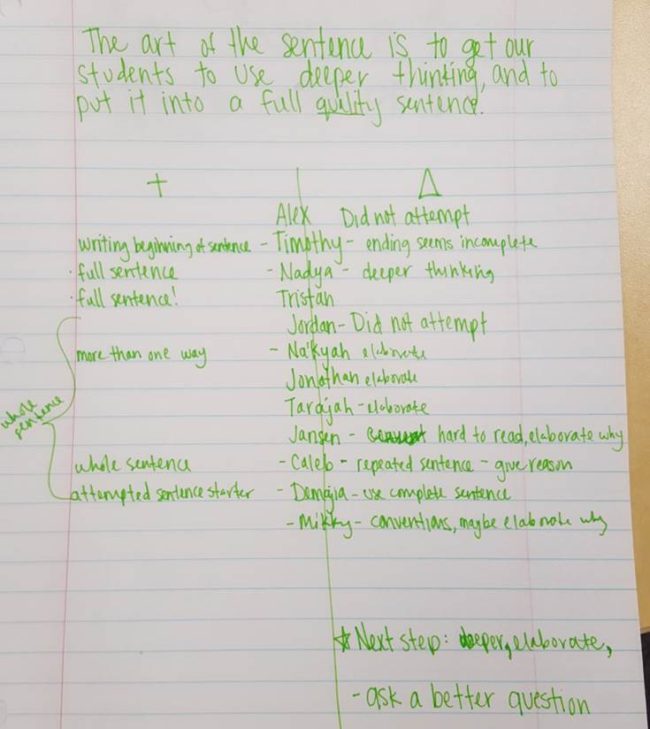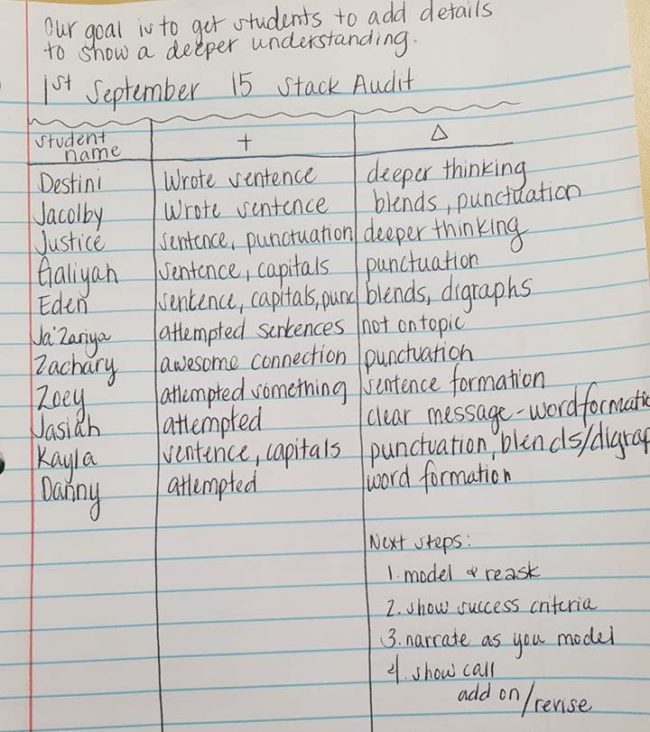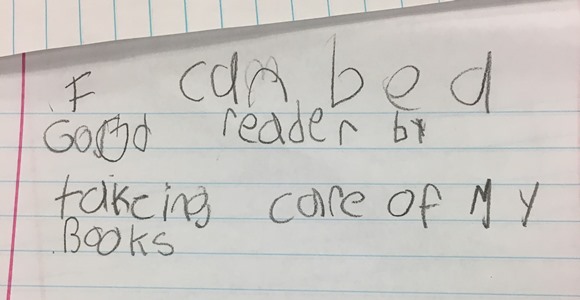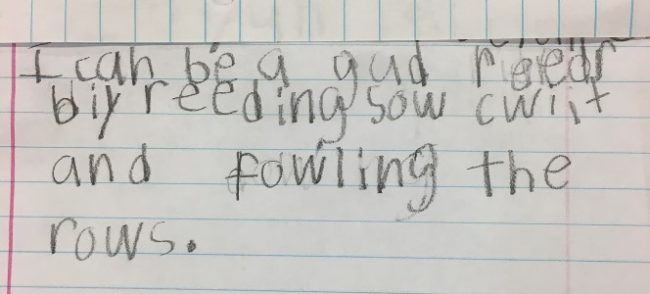09.21.16How Teachers at McWhorter Elementary Used the Stack Audit to Up Their Students’ Writing Game
The “Stack Audit” is one of my favorite tools teachers and leaders can use to study and learn from their work with students. I describe it more fully here but the gist of it is:
You gather as many examples as you can of a specific type of work (the Do Nows or Exit Tickets given by every teacher in the school, say or the in-class notes students completed in each class in the Science dept, say) and put them on the table, with a group of peers gathered round. Then you take notes and share: What are we doing that’s great and we should replicate? What do we need to get better at?
Like I said, it’s one of my favorite tools. So I was really interested when Yanet Cardoza, the principal at McWhorter Elementary School in Dallas, wrote to describe how she and her teachers had used the Stack Audit to study their application of what might be my very favorite technique: Art of the Sentence.
First, Yanet said, she and her teachers (Marjory Harris, Jennifer Bunce, Stephanie Buckingham, Katie Schlup and Sandra Delgado) took and adapted the idea I’d described in a blog post and wrote up a few rules to follow. These are pretty much gold for anyone who wants to try the Stack Audit at their school:
- Have your pile of writing samples (do now or assignment) out and ready for review along with your data tracker
- Set the clock for 15 minutes
- Read through 1 piece of writing (do now or assignment) at a time, take notes on your tracker, move on to the next student work piece
- When you take notes, be specific (note student’s name) see example from article
- When time is up, share out the + in protocol style-5 minutes
- 1 person shares 1 single observation in the + and speaks for a maximum of 30 seconds
- You can pass if you are out of +
- Continue to take turns up until you have gone around 5 times
- You can build off of someone’s idea when it is your turn but do not jump in or interrupt someone else’s 30 seconds of share time
- Repeat step 3 this time with deltas- 5 minutes
- Vote on an idea that would be the most useful to you to address from the delta–what would be most important to follow up on with your team and students (protocol style vote by going around with a brief justification on why you voted that one)-5 minutes
- Come to consensus on ONE thing to address from #5-2 minutes
- Plan action steps (specifics with dates) –8 minutes
Janet shared some of the actual notes a couple of her teachers took in their discussion of what their first graders wrote. Here they are:


A couple of things I notice: 1) How detailed and data driven the notes are. They really aggregated data by being kid-by-kid thorough. 2) Janet asked her teachers to define the purpose of the activity at the top of the page. Super smart. Knowing where you’re trying to do helps you get there!. 3) The teachers listed next step actions. Fittingly they’re different int he two examples above but they’re both really specific and actionable.
Anyway, it’s pretty amazing work by the team at McWhorter and it really matters: The data is pretty clear that teachers who set out to get a little better everyday by working together to examine and improve their practice build a culture that changes outcomes. And getting better at crafting sentences? Well, that’s a game changer. Especially this early on. So, again, kudos to Yanet and her teachers.
By the way, here are a couple of those (charming) 1st grade sentences–you can look for them to be young Tolstoy’s within a few months.


